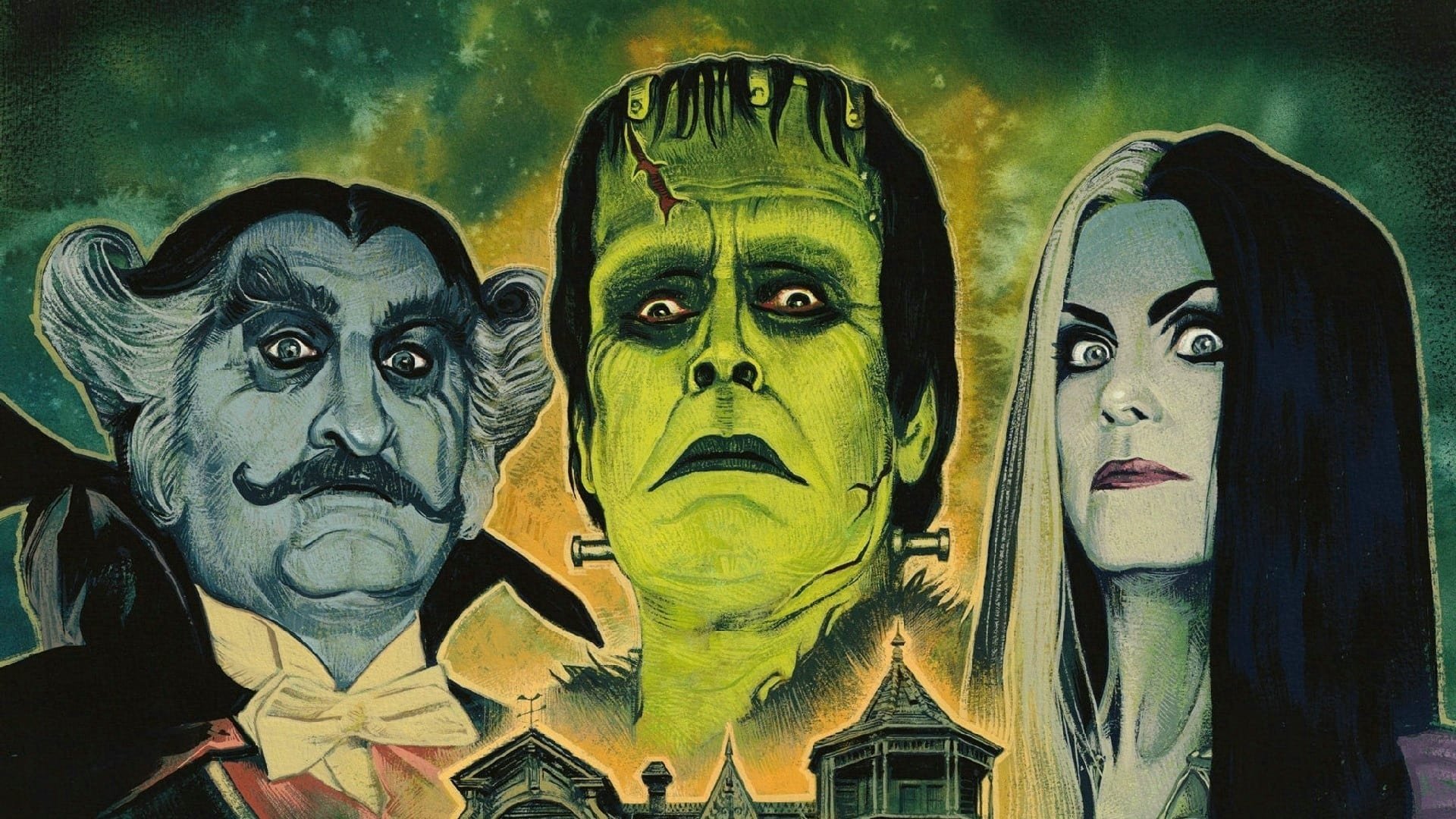The Munsters
UNIVERSALIt comes as quite a surprise for all that Rob Zombie – notorious horror director of such properties such as The Devils Rejects, Halloween, and House of a 1000 Corpses, to name just a few – announced he would be adapting a new venture of the cult classic property The Munsters into an all age appropriate, friendly feature film. The franchise itself is one of the most diluted and cherished television classics of its time and Zombie, with his infamous inclusions of horror conventions, crafted news that did not light the world on fire. However, what surprises even more after seeing Zombie’s adaption of The Munsters is that not only is it a match made in heaven, it might just have found Zombie a perfect combination for the directors' genre and aesthetic as well as connection to larger audiences.
The biggest concern here, on paper, is how Zombie would tone down his infamous flair of horror convention while not dispersing all of his cinematic styles, but still managing to adapt the PG material at hand. The issue here is that if Zombie gives too much leeway to the latter, his unique personality becomes a transparent gun for hire behind the camera. Yet, on the other hand, leaning too much on his flair, his voice becomes too loud and more ergious for the material, ultimately engulfing the project. In a surprising feat, Zombie perfectly executes an ideal balance of the two in multiple forms of style, flair and aesthetic that serve the man himself while always respecting the material at hand.
First and foremost, this spectacle feels like a Rob Zombie production, in all manners and parameters, which will be shortly discussed. Nothing is left to the imagination, and throughout the production, it stands with Zombies' stamp, namely the aesthetic. The feature entails a terrific use of practical effects regarding make-up that brings a wonderful level of larger-than-life creativity to the production but also allocates the performances to craft authentic character and mannerisms for the audience to find immersive. The likes of Zombie’s much used cohorts with Sheri Moon Zombie and Jeff Daniel Phillips are not trapped behind a monotonous wall of green screen and CGI make-up that speaks for these performances. The prosthetics and costume design also bring a life of themselves to the party, they’re obtuse, loud, and brash – each detailing elements that speak words and development in which the screenplay can focus elsewhere. With this, a certain tongue firmly planted in cheek is achieved with not necessarily a meta-commentary but a wink to the audience that this feature is larger than life and contextually silly, it’s a form that Zombie does expertly well in crafting, almost like a safe zone for both children and adults who can both find a common crowd of watching something silly without either party patronised.
That brings the conversation into the territory of tone. Such an area of production has been a point of contention in the cinematic world of Rob Zombie. Never has it been a straight-laced tonal event with pure horror or black comedy, Zombie usually finds a dabble of both with a strong contention of the two tones in an often polarising fashion. Here, surprisingly, Zombie tones both avenues down and restricts his output to the bare minimum of both, allowing the source material to speak for itself. It’s a match made in heaven, not only for Zombie himself who showcases great technique regarding the director's output on another predisposed franchise akin to his Halloween double bill – which was inflicted with the Weinstein authority – but also for his audiences who now can not only see the craftsmanship the director can conjure but also see another venture of passion the director musters up here. However, don’t let this idea of Zombie being restraint to the source material be a sign of the director notching down the horror aesthetic, far from it. Munsters does not shy away from the horror genre with notable moments of quite forward make-up design that looks horrifying and notably scary for the target audience who are hopefully going to find this out. Even for a seasoned veteran of horror, Zombie still manages to throw in some quite gruesome iconography, which works well for the target audience who will be watching something that is a little out there and darker than its contemporaries which should give it some longevity and giddiness to attach fans of the work.
Alas, not all things can be overly perfect. Zombie puts forward quite a lot of narrative arcs here that take up a considerable amount of the running time and, ultimately, little cohesion can be found in terms of what truly is the plot. For one, having to explain what this feature is only occurs towards the two-thirds mark of the running time with a sizeable amount of arcs occurring beforehand. Now, it’s not a problem, per se, for the older crowd who will gravitate towards the material, but for the younger target audience having to sit through quite a considerable amount of exposition and elongated character arcs, there is a certain worry it will lose them before things get started with the story arcs themselves having a degree of adult-oriented focus – such as marriage and fraud, etc. Nevertheless, once Munsters gets into its groove it becomes a wacky, weird and often wonderful time that feels dear to the original work while also bringing in new audiences to join the fun. Yet, the biggest surprise here is that Rob Zombie feels to have found his groove and balance within the horror genre with terrific results and one that seemingly has him on the right path to surprise old and new fans of his material.


